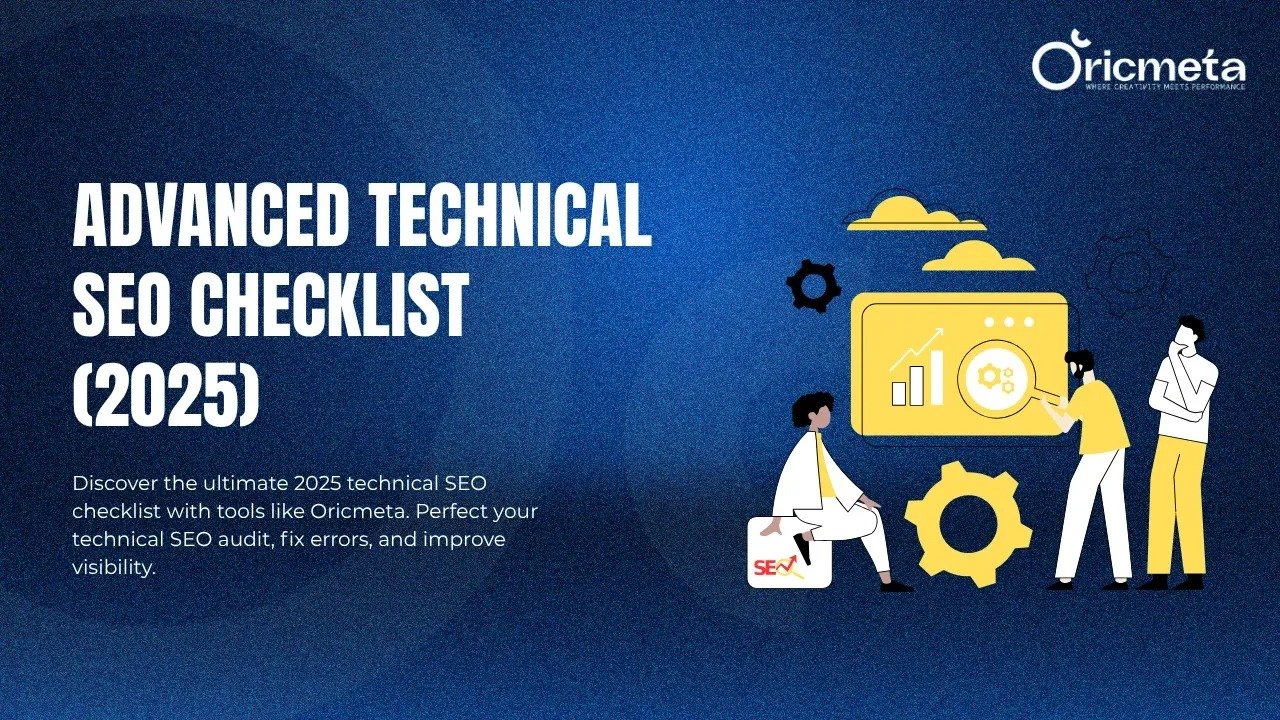Examining the performance of your website in search engines and spotting areas for development depend on an SEO audit. An SEO audit guarantees that your digital presence matches search engine algorithms and provides the best possible user experience whether you run a tiny blog, an e-commerce store, or a major corporate website. Should you be thinking about an SEO audit, this guide will help you understand what to expect and the reasons behind the need for this vital action for your online success.
1. Appreciating the Goals of an SEO Audit
An SEO audit functions for your website like a health check-up. It evaluates your site’s compliance with Best SEO Services standards and points up technical, on-page, and off-page problems likely influencing your ranking. The aim is to find areas of strength and weakness and create workable plans to raise performance. Major goals consist of:
- Enhancing search engine visibility.
- Improving user experience
- Enhancing natural traffic.
- Getting ready for a change in algorithms.
2. Main Elements of an SEO Audit
Examining many facets of your website’s technical SEO, on-page features, content quality, and backlinks a thorough SEO audit looks at audit should yield the following:
A. Technical SEO Analysis
The performance of your website in search engines is built upon technical SEO. This component of the audit consists in:
- Site Performance and Speed How quickly do desktop and mobile versions of your website load?
- Mobility-friendliness: Make sure your website runs for mobile users.
- Crawlability and Indexability: Verifying that search engine bots can access and index your pages effectively.
- URL Structure: Checking for clean and logical URLs that improve navigation.
- Robots.txt Files and Sitemap: Making sure these files are in proper order will help search engines guide themselves.
- HTTPS Security: Confirming your website uses a secure HTTPS protocol.
B. On-Page SEO Analysis
On-page SEO is the term for components on your website that affect ranking. Anticipate the audit to address:
- Keyword Optimization: Analyzing how well your content targets relevant keywords.
- Meta Tags: Review meta titles and descriptions for clarity, length, and keyword usage.
- Header Tags (H1, H2, etc.): Ensuring proper use of headers for better content organization.
- Alt Text for Images: Checking if images include descriptive alt text for accessibility and SEO.
- Internal Linking: Assessing the structure and effectiveness of links connecting pages within your site.
C. Content Quality Evaluation
SEO is mostly dependent on content. The audit shall assess:
- Relevance and Value: Ensuring content aligns with user intent and provides value.
- Duplicate Content: Identifying and addressing duplicate or thin content that could harm rankings.
- Content Format: Reviewing readability, structure, and multimedia elements like images or videos.
- Keyword Density Make sure keywords are naturally incorporated without excess.
D. Backlink Profile Analysis:
A main ranking consideration is backlinks; an audit will look at:
- Quality of Backlinks: Assessing the credibility and relevance of linking domains.
- Anchor Text Distribution: Checking the diversity and natural use of anchor text.
- Toxic Links: Identifying harmful or spammy backlinks that may require disavowal.
E. User Experience (UX) Review
The performance of your website in search results directly relies on your user experience. The audit will take under account:
- Navigation: Ensuring intuitive and easy-to-use menus and links.
- Engagement Metrics: Analyzing bounce rate, time on page, and click-through rate (CTR).
- Accessibility: Confirming the site is usable by individuals with disabilities.
3. Tools Applied Throughout an SEO Audit
Many times, SEO audits combine specialist technologies with hand reviews. Some often-used instruments are:
- Google Analytics: Provides insights into traffic, user behavior, and conversion rates.
- Google Search Console facilitates search performance data and indexing problem identification.
- SEMrush or Ahrefs: Useful for analyzing backlinks, keywords, and competitive insights.
- PageSpeed Insights: Evaluates website speed and suggests performance improvements.
- Screaming Frog: Scans for technical issues like broken links and duplicate content.
4. Typical Problems Noted in an SEO Audit
An SEO audit will likely find a range of problems, including:
- Slow Page Loading Times: Negatively impacting user experience and rankings.
- Missing Meta Tags: Failing to optimize meta titles and descriptions.
- Broken Links: Damaging user navigation and SEO credibility.
- Keyword Cannibalization: Multiple pages competing for the same keyword.
- Low-Quality Backlinks: Harmful links from spammy websites.
- Outdated Content: Reducing the relevance and usefulness of your site.
5. SEO Audit Deliverables
Usually, a professional SEO audit consists of a thorough report with recommendations and a results summary. Important areas of the report can be:
- Summary of Current Performance: a perspective of the traffic, visibility, and ranks of your site.
- Identified Issues: A list of technical, on-page, and off-page problems.
- Suggested Actions: Methodical fixes for found problems.
- Priority Levels: Highlighting which issues need immediate attention.
- Future Strategies: Suggestions for long-term improvements and content development.
6. How Should One Act Based on SEO Audit Results?
Using the suggested improvements comes next once you have your audit report. Approach this as follows:
- Prioritize Critical Issues: Start with high-impact fixes, such as addressing technical errors or broken links.
- Optimize Content: Update or create content that aligns with keyword research and user intent.
- Track advancement: Track changes in traffic and ranks with Google Analytics.
- Engage experts: Should the audit expose difficult technological problems, you should think about consulting SEO professionals to help.
7. Advantages of Consistent SEO Audits
SEO is a continuous activity, hence constant performance depends on regular audits. Advantages include:
- Staying Ahead of Algorithm Changes: Ensuring your site complies with the latest updates.
- Maximizing ROI: Improving visibility and attracting more qualified leads.
- Enhancing User Experience: Providing a smoother and more engaging website experience.
8. When Should You Schedule an SEO Audit?
The objectives of your website will determine how often SEO audits should take place. Think of an audit in response to:
- Starting a fresh webpage.
- Seeing declines in traffic or rankings.
- Changing the appearance or content on your site.
- Getting ready for season campaigns.
Conclusion
Finding flaws and opening chances to improve the performance of your website depends on an SEO audit, which is a strong instrument. An audit sets the stage for ongoing search engine ranking and organic traffic by tackling technical problems, streamlining on-page components, and raising content quality. Investing in consistent SEO audits guarantees your online presence stays competitive and effective in a constantly changing digital environment, regardless of your role as a small business owner or digital marketer.















Leave a Reply